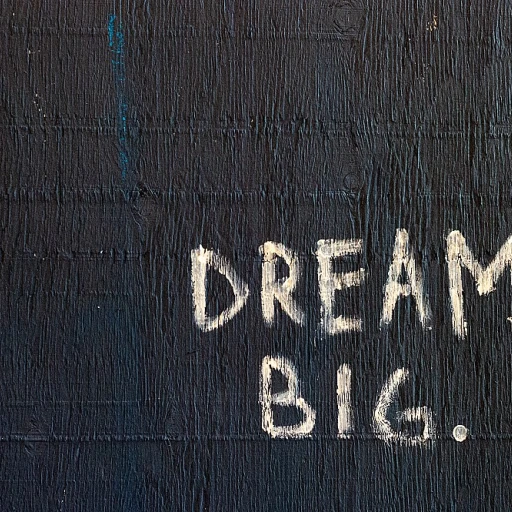Defining Pre-Screening Interviews
{ "result": "
The Essence of Initial Interviews
\n\nIn the fast-paced world of hiring, pre-screening interviews serve as a crucial first step in the interview process. They help determine a candidate's suitability for the role and the company, effectively serving as a filter to identify individuals who exhibit the required qualifications. The main objective of these initial conversations is to save time, ensuring that only the most qualified candidates move forward in the hiring pipeline.\n\nUnderstanding the dynamics of these interviews is essential for both employers and candidates aiming to enhance their experience. By clarifying the expectations early on, the interview can assess if the candidate is a good fit for the position and the work environment. During these interviews, custom screening questions often revolve around the candidate's skills, cultural fit, and salary expectations. These questions help hiring managers ascertain whether a candidate aligns with the company culture and management style.\n\nEmployers can create a seamless and informative interview process by structuring pre-screening interviews to evaluate a candidate's potential without overwhelming them. Candidates, on the other hand, should approach these interviews as the first real opportunity to showcase what makes them a suitable applicant. Exploring the role and understanding the company's mission before the screening interview can vastly improve a candidate's performance.\n\nPre-screening interviews have evolved beyond merely assessing candidates on paper qualifications. They now serve as an essential stepping stone in establishing a strong connection between the applicant and the company, setting the tone for subsequent interviews. For individuals aiming to delve deeper into mastering these initial interactions and enhancing their effectiveness,
mastering the interview process for a legal intake specialist role offers valuable insights.", "h3_style": "The Essence of Initial Interviews" }
The Impact on Candidate Experience
Enhancing Communication for a Positive Experience
In today's competitive job market, how a company conducts its screening interviews can significantly impact the candidate experience. Pre-screening interviews often serve as the first real interaction between the candidate and the hiring company, setting the tone for the remainder of the interview process. It's during these initial interviews, typically conducted over the phone or virtually, that candidates begin forming their perceptions about the company's culture and work environment.
Studies have consistently shown that clear and respectful communication can greatly enhance a candidate's experience. Candidates value honesty and transparency, especially when discussing the role, expectations, and potential career paths. It's essential for hiring managers to ask the right screening questions, tailored to understand the candidate's fit for both the position and the company culture. These questions not only assess the candidates' skills and qualifications but also their potential alignment with the company's values and management style.
Moreover, the manner in which pre-screening interviews are conducted can influence a candidate's interest in the position. Candidates are more likely to continue the interview process and consider a job offer if they feel respected and valued from the outset. Therefore, companies must strive to create an interview process that is as informative for the candidate as it is for the employer.
The importance of communication cannot be understated during this stage. By fostering an open dialogue, companies can ensure that both parties have a clear understanding of what is expected throughout the hiring process. This not only boosts the candidate's experience but also positions the organization as an employer of choice. For more insights, consider exploring
communication strategies with job candidates that can set the tone for a successful hiring journey.
Key Components of a Pre-Screening Interview
Crafting Effective Pre-Screening Interviews
Pre-screening interviews are an integral aspect of the hiring journey, ensuring that only the most qualified candidates progress to the next stages of the recruitment process. To extract the most value from these interviews, it's vital to focus on certain key components that enhance both the employer's judgment and the candidate's experience.
Firstly, defining clear screening questions is essential. These should be designed to assess the fundamental skills and experiences required for the role. By doing so, hiring managers can efficiently determine whether a candidate is a good fit for the position. Questions may range from exploring a candidate's technical skills to understanding their cultural fit within the company. It is crucial to align these questions with the {
company culture} to ensure that the interview is both informative and engaging.
Additionally, the time allocated for each pre-screening interview must be managed wisely. Balancing sufficient duration to thoroughly evaluate each candidate with respect for their time helps nurture a positive candidate experience. Moreover, aligning the tone and style of the screening interview with the company's work environment and management style can make candidates feel more at ease, allowing them to showcase their true potential.
Moreover, pre-screening interviews should clarify important job details such as key responsibilities, expected work hours, and salary expectations. Transparency in these areas will aid candidates in determining if the position aligns with their personal and professional goals, leading to a more mutually beneficial hiring process.
Pre-screening interviews serve as both a gateway and a filter in the recruitment process, and by implementing these key components, companies can ensure a streamlined and positive experience for all candidates involved.
Benefits for Employers and Candidates
Advantages for Both Parties in the Hiring Process
In the hiring landscape, pre-screening interviews offer considerable benefits for both employers and candidates. By addressing the initial stages of the interview process efficiently, these sessions help businesses and job seekers make more informed decisions.
For employers, pre-screening interviews are instrumental in filtering out unqualified candidates early in the hiring process. This is achieved through carefully curated screening questions that assess the fundamental skills and experiences required for the role. The pre-screening phase allows hiring managers to efficiently identify individuals who are a good fit for the position, thus conserving valuable time and resources.
Beyond skill assessment, pre-screening interviews provide insight into a candidate’s fit with the company culture and work environment. Through targeted questions, employers can gauge whether a candidate's values and personality align with the company's ethos, ultimately striving for a cultural fit. This not only enhances the possibility of selecting the right candidate but may also reduce employee turnover in the long run.
From the perspective of candidates, pre-screening interviews serve as an excellent opportunity to showcase their qualifications and express their genuine interest in the position. Candidates are able to clarify their salary expectations, discuss their career trajectory, and demonstrate how their skills are relevant to the company's needs. Importantly, these early interactions allow candidates to learn more about the company and decide if it is the right place for them to work.
Moreover, candidates benefit from understanding the company's management style and team dynamics. By engaging in the pre-screening interview, they gain a clearer understanding of what pre-employment expectations entail and can ascertain if they will be a good fit for the company's work environment.
In summary, pre-screening interviews are a vital part of the hiring process, offering mutually beneficial insights for both parties. By effectively conducting these interviews, employers can enhance their candidate experience, streamline the selection process, and ultimately secure qualified candidates who align with the company's long-term vision.
Tips for Candidates to Succeed
Setting Yourself Up for Success in Pre-Screening Interviews
Navigating a pre-screening interview is essential for candidates aiming to make a positive first impression in the hiring process. Here are some practical tips to help you succeed:
- Understand the Role: Thoroughly research the company and the position you applied for. Knowing the job requirements and company culture can guide you in tailoring your responses during the interview, helping you demonstrate why you're a good fit for the role and the organization.
- Prepare for Common Interview Questions: Anticipate questions related to your work experience, skills, and salary expectations. Practicing how you'll articulate your experiences and skills, and understanding your compensation needs, can help you answer confidently, showing that you are both qualified and aligned with the company's expectations.
- Highlight Your Skills and Experience: Clearly express how your skills and experience align with the job description. Focus on experiences that exhibit your capability to handle the responsibilities required by the position, demonstrating why you're a candidate worth interviewing further.
- Emphasize Cultural Fit: Demonstrate your understanding of the company’s mission and values. Presenting yourself as someone who shares the company's ethos can reassure the hiring manager of your potential fit within their work environment.
- Communicate Clearly: Pay attention to your clarity and conciseness in responses. Effective communication can reflect your professionalism and readiness for the role, leaving a lasting impact on the interviewer.
Explore more about effective communication.
- Time Management: Be punctual and respectful of the interview's time constraints. Being prompt not only shows respect but also reflects your organizational skills.
Remember, the pre-screening interview is your opportunity to showcase your potential and set the tone for future interactions. Proper preparation, understanding the company and role, and expressing your qualifications effectively can significantly enhance your candidate experience and increase your chances of moving forward in the hiring process.
Future Trends in Pre-Screening Interviews
The Evolution of Pre-Screening Interviews
The landscape of pre-screening interviews is constantly evolving, driven by technological advancements and changes in company values. As companies focus increasingly on cultural fit and aligning candidates with the overall work environment, pre-screening interviews are embracing new methodologies and tools.
One significant trend is the adoption of AI-powered tools, which assist in assessing candidates' skills and creating a more efficient screening process. These tools can analyze responses to screening questions, identifying potential fits with the company's expectations and reducing bias in hiring decisions. They've become instrumental in refining how companies evaluate salary expectations and align candidates with organizational values.
Furthermore, the integration of virtual interview platforms has become more prevalent. With remote work gaining traction, companies now utilize video interviews more frequently during the pre-screening phase. This not only saves time but also allows hiring managers to assess candidates from various locations, expanding the talent pool and ensuring a diverse range of qualified candidates.
Additionally, there is a greater emphasis on candidate experience. Companies are considering how the pre-screening stage impacts the overall impression candidates have of the organization. Providing clear communication, feedback, and a structured process can significantly improve this experience, leading to better engagement and retention rates.
As the job market becomes more competitive, organizations are also refining their pre-screening questions, ensuring they accurately reflect the role and align with management style and company culture. This helps to identify candidates who are a good fit for the position early in the hiring process, streamlining the transition to subsequent interview stages.
In summary, as technology becomes more integral to the hiring process, the role of pre-screening interviews in assessing candidates will continue to expand, focusing on finding the right fit in terms of skills and cultural alignment.







